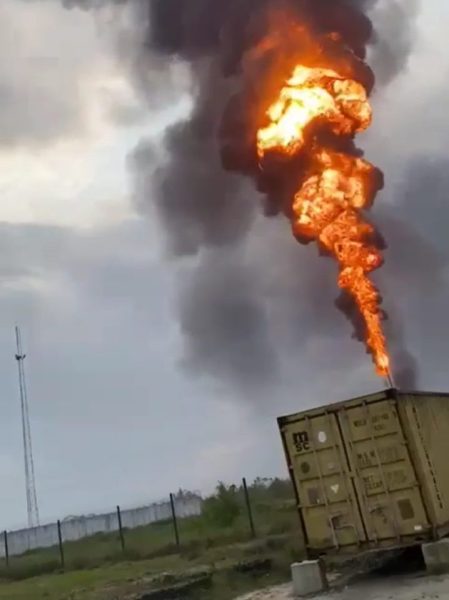
Mkpoikana Udoma
Port Harcourt — Residents of Ibeno in Akwa Ibom State were thrown into alarm on Tuesday as an unusually intense gas flare from Seplat Energy Plc’s operations at the Qua Iboe Export Terminal, QIT, engulfed the area in heat and thick plumes of smoke.
Seplat Energy Plc in December 2024 completed its $1.28billion acquisition of Mobil Producing Nigeria Unlimited, MPNU, from ExxonMobil, to become an enlarged company with equity in 11 oil blocks – onshore and shallow water Nigeria – 48 producing oil and gas fields; five gas processing facilities; and three export terminals, including QIT.
Witnesses described the flare as far more severe than the community has ever experienced, raising fresh concerns over environmental degradation, health risks, and the worsening impact of gas flaring on local livelihoods.
Ms. Helen Bassey Eyo of the Network Advancement Program for Poverty and Disaster Risk Reduction, NAPPDRR, who witnessed the event firsthand, recounted the overwhelming intensity of the flare.
“The security was very tight; they refused to allow us to take photos of the flare But standing from a distance, we could still feel the heat—it was intense, more than anything we have seen before.”
According to Eyo, Seplat, much like ExxonMobil, has been flaring gas in Ibeno for years, but Tuesday’s event was unprecedented. “This is the first time we’re witnessing such an intense flare in Ibeno,” she added.
The dramatic escalation of gas flaring has sparked outrage among environmentalists and community members, who say it is worsening an already dire situation in the Niger Delta region.
Eyo warned that the unchecked emissions pose serious threats to public health and the ecosystem.
“Seplat should be warned over this gas flaring because it is affecting the environment. The temperature in Ibeno was unusually high today because of this. It is not just about heat; it is about environmental degradation. It is affecting fertility among men and women in Ibeno. It is destroying our rivers, contaminating our drinking water, and making life unbearable.”
Gas flaring, a long-standing issue in Nigeria’s oil-producing regions, has been linked to air and water pollution, acid rain, respiratory diseases, and declining fish populations.
Last week, a similar massive flare was observed at the old plant of the Port Harcourt Refinery in Alesa Eleme, Rivers State, which triggered fear among workers and residents, as emergency fire operatives battled to control the intensity of the flames.
Despite government regulations and global commitments to cut emissions, oil companies operating in the Niger Delta continue to flare gas at alarming rates.
With Tuesday’s intensified flaring incident in Ibeno, the Youths and Environmental Advocacy Centre, YEAC-Nigeria, has demanded urgent action from both the government and regulatory bodies to hold Seplat accountable.
Executive Director of YEAC-Nigeria, Dr Fyneface Dumnamene Fyneface, insisted that immediate intervention is necessary to prevent further environmental damage and protect the well-being of the people of Ibeno.



